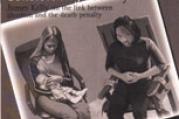Click here if you don’t see subscription options






When the speaker finished his talk, I walked outside to a private little courtyard. For 20 minutes I stared at the trees in front of me. I saw huge, tall trunks, their branches like barren tentacles reaching into the gray, cloudy sky. I thought about a difficult talk we heard earlier in the day. A young man had painfully recounted the impact on his family of his father’s diagnosis with severe depression and admission to a psychiatric hospital.
I thought about my own family, anticipating how our loving circle might someday shatter. "What will I suffer when I have to face the death of one of my siblings or parents?" I wondered. Looking out to the dead trees, I pondered how we would handle Thanksgiving without mom to cook the turkey. What would the day be like without dad waiting at the door, greeting everyone with an exuberant "Happy Bird-Day"? I anticipated which disease would hasten my death, and which of my siblings would suffer tragedy first. Staring at the trees, I felt profound pain. I realized that I had been unconsciously focusing on the potential losses in my life for a long time.
The retreat director rang a bell, summoning us back to the conference room. As I turned to leave the courtyard, I glanced downward. There, at my feet, was a small, lovely garden. I must have seen the garden when I walked in, but I certainly did not notice it. Purple and yellow crocuses sprouted everywhere, their tiny cups of petals brimming with color and fragrance. They were beautifulno, exquisite! Such fragile life, beating back winter through sheer confidence in the promise of spring. I stared at the garden as the bell sounded again. How could I have missed such a glorious sight? I had just stood at the edge of the garden for 20 minutes! How could I possibly have missed it? Then I knew. As warmth comes when the sun breaks through the clouds, I understood.
I missed the crocuses because I chose to focus on the deadened trees. In the very same way, I had just spent 20 minutes pondering the potential deadness of my family, instead of reliving our joys and giving thanks for such wonderful people in my life. Epiphany! Our lives are full of deaths. Tiny deaths. Monstrous deaths. Tragic, unfathomable deaths. Our lives are also full of births. Renewals. Beginnings. Resurrections. I can choose to focus on the death or on the life. I can choose to see dying trees or birthing crocuses. I can choose.
Wasn’t that the point of our retreat, I asked myself? Wasn’t that the message of Christianity? We can choose to live in the shadow of the dead wood of the cross. Or, we can choose to live in the bright promise of resurrected life. God’s presence in the world is not only about the promise of eternal life after our bodies fail us. The glory of resurrection reveals itself in every moment. We can choose to recognize God; we can choose to live our faith; we can choose to see God’s manifestation. Or not.
I have often thought about my epiphany of dead trees and crocuses. Do I choose to suffer hopelessly, or to acknowledge grace in every moment? Do I opt to experience life as barren, fruitless trees, or as a vast garden of crocuses? Will I give in to death, or rejoice in never-ending birth? We see dead trees everywhere. They appear so visible, so obvious, so hard to miss. Crocuses, we have to hunt for. We have to sweep away moldy leaves and tattered litter, or scoop away dirty, leftover piles of snow before the crocuses appear. But the promise never fails us. If we move aside the deadness, and give crocuses a little room to grow, soon we see:
daffodils,




